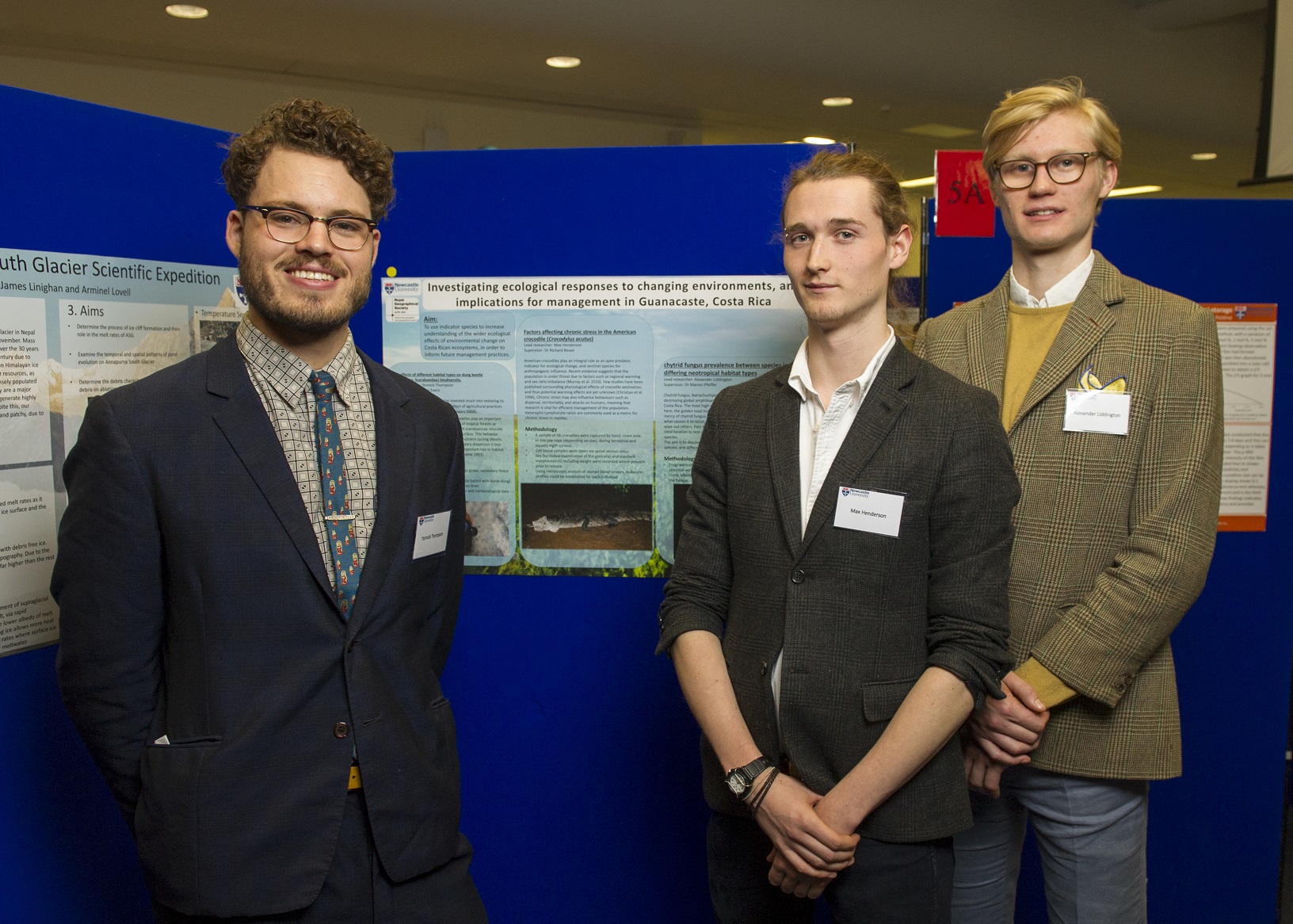2017 Participants
 Max Henderson, Alexander Liddington and Yannick Thompson
Max Henderson, Alexander Liddington and Yannick Thompson
- BSc Hons (Biology/Zoology)
- Investigating ecological responses to changing environments, Palo Verde National Park, Costa Rica
This student-led expedition encompassed 3 studies, all of which were designed to investigate the effects of environmental change on a vast 184 km2 expanse of pristine wetland and dry forest habitat in Costa Rica.
Max collected and analysed blood samples and body measurements from American Crocodiles to assess levels of chronic stress within the population, and investigate its potential causes. Crocodiles play an extremely important role as ecosystem engineers, apex predators, and keystone species for conservation efforts, and chronic stress levels could provide a valuable insight into the health of populations once causal mechanisms are better understood.
Yannick used baited pitfall traps to study the community composition and abundance of dung beetles in various different habitats, such as mango groves, meadows, and secondary forest. Dung beetles can act as pollinators, nutrient cyclers, and improve fertility of soil. Assessment of their habitat preference can provide information to help predict and mitigate environmental impacts of land development.
Alexander swabbed amphibians to test for the presence of Chytrid fungus, a widespread disease which is destroying global amphibian populations. Due to little being known about factors affecting spread of chytrid through different habitats, Palo Verde and its habitat diversity provides a near-perfect site to study drivers of spread among different species, habitats, and populations.
Funding sources: Royal Geographical Society (with IBG), Newcastle University Expeditions Committee, James Marshall Foundation and Hertfordshire Travel Fund
Supervisors: Dr Richard Bevan, Dr Marion Pfiefer & Dr Darren Evans
